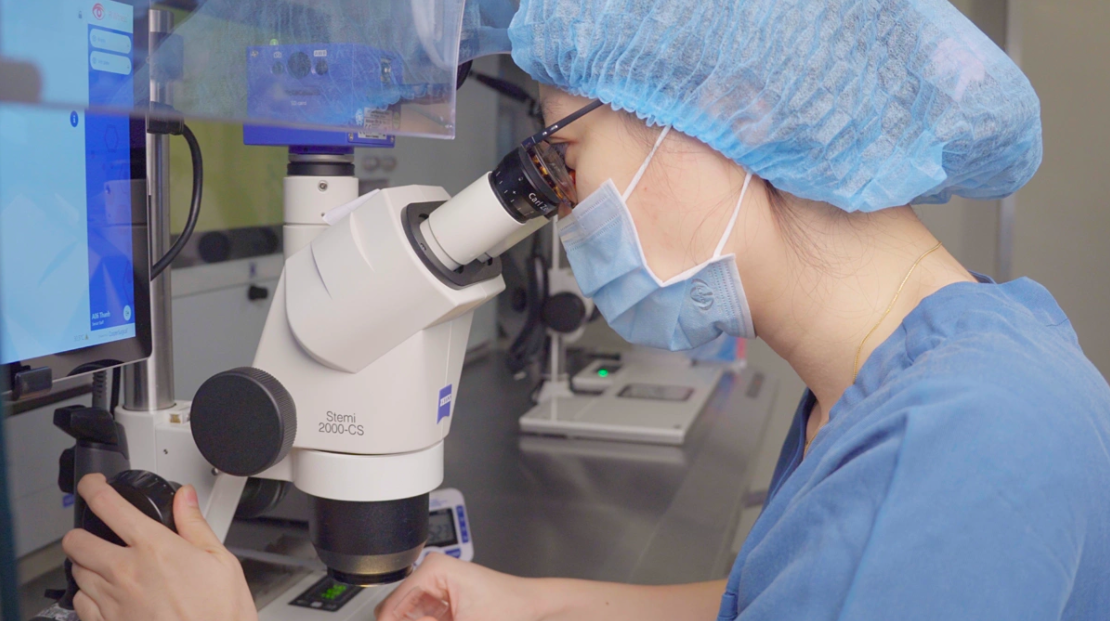This new regulation, part of Decree 207 issued by the Vietnamese government, marks a significant advancement in reproductive rights for single women in Vietnam.
Previously, under Decree 10/2015, single women could only undergo IVF with a specialist doctor's recommendation. Now, their desire to have a child is sufficient.
This expanded access reflects modern social trends and the needs of single women, many of whom are choosing not to marry or are opting to become single mothers.
The decree also grants single women the right to receive embryos if they lack viable eggs.
 |
Technician performing assisted reproduction at a hospital in TP HCM. Photo: Le Phuong |
Technician performing assisted reproduction at a hospital in TP HCM. Photo: Le Phuong
Professor Nguyen Viet Tien, former Deputy Minister of Health and President of the Vietnam Obstetrics and Gynecology Association, noted that single women have been using IVF for years. The procedure involves fertilizing a woman's eggs with anonymous donor sperm from a sperm bank, ensuring confidentiality.
At the Center for Assisted Reproduction and Tissue Transplantation, Hanoi Medical University Hospital, egg freezing has seen a sharp rise in recent years. Five years ago, it was uncommon, primarily for infertile couples or women undergoing hormone therapy or treatment for breast or ovarian cancer, with 30 to 50 cases annually. In the past three years, the number of women, mostly single, opting to freeze their eggs has increased, with the center handling about 100 cases per year.
Other fertility centers report a similar trend. For instance, the Post Office Hospital freezes eggs for about 350 women, receiving five to seven new cases monthly.
Egg freezing preserves a woman's ability to conceive later in life. The eggs are retrieved, frozen, and stored. When needed, they are thawed, fertilized with sperm, and implanted in the uterus. This allows women to become mothers even past their prime childbearing years.
IVF has been available in Vietnam since 1998, resulting in over 150,000 births. More than 400 children have been born through surrogacy for humanitarian purposes, according to the Ministry of Health. Over 50 assisted reproduction centers operate nationwide, employing advanced techniques with IVF success rates reaching 70%.
Le Nga












